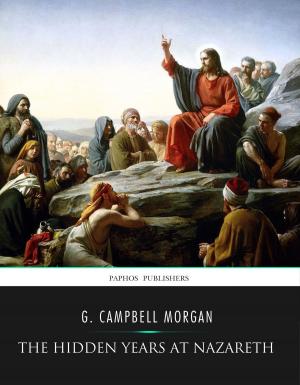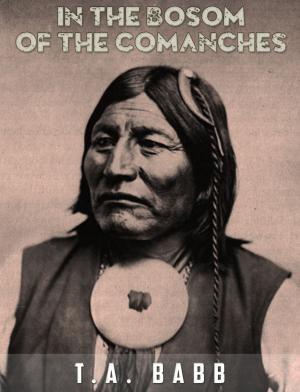Battles and Leaders of the Civil War: General Robert E. Lee at The Wilderness
Nonfiction, History, Americas, United States, Civil War Period (1850-1877), Military, 19th Century| Author: | Charles S. Venable | ISBN: | 9781619825949 |
| Publisher: | Charles River Editors | Publication: | January 18, 2012 |
| Imprint: | Language: | English |
| Author: | Charles S. Venable |
| ISBN: | 9781619825949 |
| Publisher: | Charles River Editors |
| Publication: | January 18, 2012 |
| Imprint: | |
| Language: | English |
With the exception of George Washington, perhaps the most famous and celebrated general in American history is Robert E. Lee (January 19, 1807 October 12, 1870), despite the fact he led the Confederate Army of Northern Virginia against the Union in the Civil War. The son of U.S. Revolutionary War hero Henry "Light Horse Harry" Lee III, a relative of Martha Custis Washington, and a top graduate of West Point, Lee had distinguished himself so well before the Civil War that President Lincoln asked him to command the entire Union Army. Lee famously declined, serving his home state of Virginia instead after it seceded. Lee constantly defeated the Unions Army of the Potomac in the Eastern theater from 1862-1865, considerably frustrating Lincoln and his generals. His leadership of his army led to him being deified after the war by some of his former subordinates, especially Virginians, and he came to personify the Lost Causes ideal Southern soldier. Of all the battles Lee fought in, he was most criticized for Gettysburg, particularly his order of Picketts Charge on the third and final day of the war. Despite the fact his principle subordinate and corps leader, General James Longstreet, advised against the charge, Lee went ahead with it, ending the armys defeat at Gettysburg with a violent climax that left half of the men who charged killed or wounded. Lee died in 1870 before he could write memoirs about the Civil War, so his only primary accounts were reports and dispatches during the war that were preserved in the Official Records. However, a member of his staff, Charles S. Venable, wrote extensively about Lees actions in some of the wars most famous battles for the very well known Battles & Leaders of the Civil War series. In this article, Venable discusses the Battle of The Wilderness in depth and the movements of the Overland Campaign between Grant and Lee until the armies settle into a long siege at Petersburg. This edition includes pictures of Lee.
With the exception of George Washington, perhaps the most famous and celebrated general in American history is Robert E. Lee (January 19, 1807 October 12, 1870), despite the fact he led the Confederate Army of Northern Virginia against the Union in the Civil War. The son of U.S. Revolutionary War hero Henry "Light Horse Harry" Lee III, a relative of Martha Custis Washington, and a top graduate of West Point, Lee had distinguished himself so well before the Civil War that President Lincoln asked him to command the entire Union Army. Lee famously declined, serving his home state of Virginia instead after it seceded. Lee constantly defeated the Unions Army of the Potomac in the Eastern theater from 1862-1865, considerably frustrating Lincoln and his generals. His leadership of his army led to him being deified after the war by some of his former subordinates, especially Virginians, and he came to personify the Lost Causes ideal Southern soldier. Of all the battles Lee fought in, he was most criticized for Gettysburg, particularly his order of Picketts Charge on the third and final day of the war. Despite the fact his principle subordinate and corps leader, General James Longstreet, advised against the charge, Lee went ahead with it, ending the armys defeat at Gettysburg with a violent climax that left half of the men who charged killed or wounded. Lee died in 1870 before he could write memoirs about the Civil War, so his only primary accounts were reports and dispatches during the war that were preserved in the Official Records. However, a member of his staff, Charles S. Venable, wrote extensively about Lees actions in some of the wars most famous battles for the very well known Battles & Leaders of the Civil War series. In this article, Venable discusses the Battle of The Wilderness in depth and the movements of the Overland Campaign between Grant and Lee until the armies settle into a long siege at Petersburg. This edition includes pictures of Lee.















